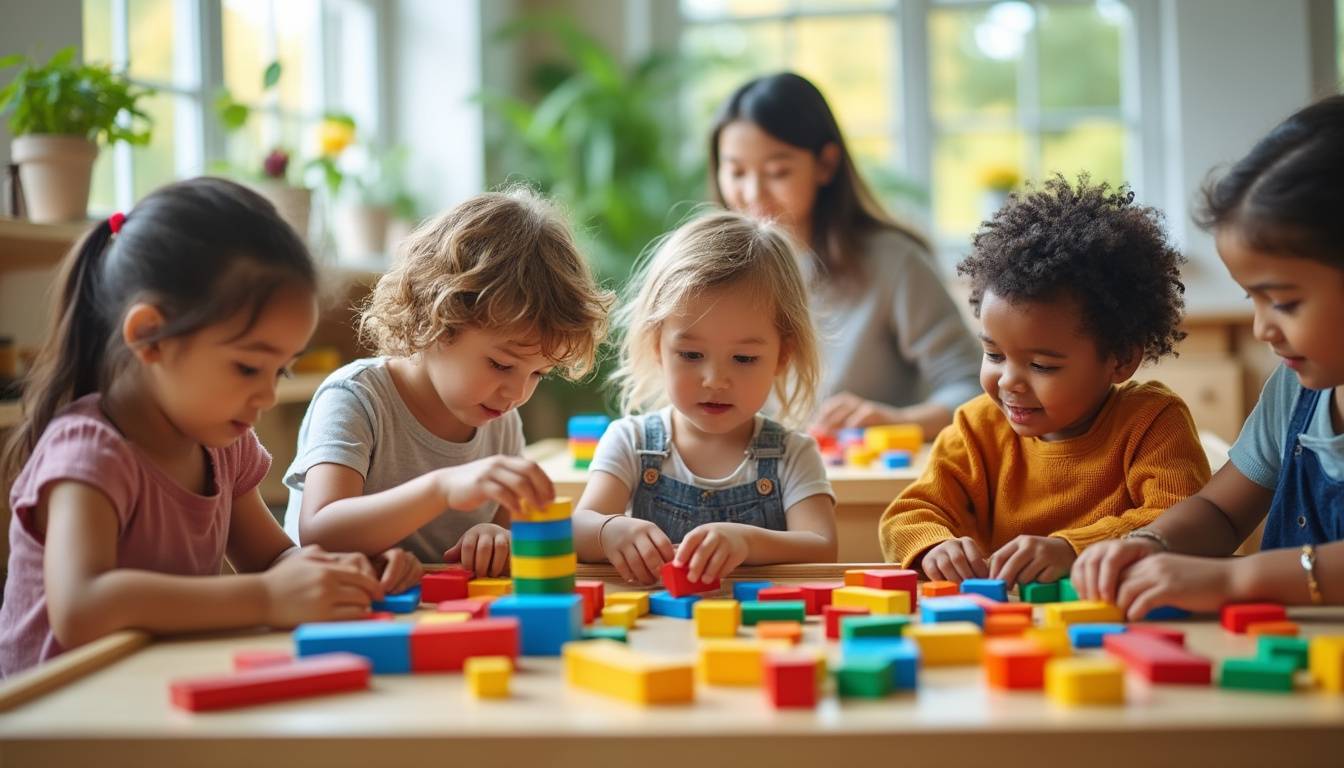Montessori education today stands as a beacon for cultivating independent thinkers and creators equipped to thrive in an ever-evolving world. Rooted in Dr. Maria Montessori’s visionary approach, this educational method emphasizes hands-on learning, personal responsibility, and social consciousness. By integrating STEM disciplines naturally within its child-centered framework, Montessori fosters curiosity and innovation from an early age, preparing students not just academically but as globally engaged citizens. In a landscape where education constantly adapts to new challenges, Montessori schools like Country Montessori School exemplify how nurturing empathy and exploration together shapes the innovators of tomorrow.
Montessori Education and Its Role in Fostering Innovation
Montessori education offers a unique blend of guided freedom and structured learning that nurtures critical skills essential for innovation. Unlike traditional schooling, Montessori classrooms encourage children to explore concepts at their own pace, deeply engaging with materials designed to stimulate the senses and intellect.
- Independence and Confidence: Students develop self-motivation and trust in their abilities, forming a foundation for problem-solving and creative thinking.
- Hands-on Materials: Learning with Montessori Materials such as those provided by Montessori Services or Montessori Outlet allows abstract concepts in STEM to become tangible and intuitive.
- Self-Directed Learning: This nurtures innovation by allowing children to pursue their curiosities, crucial in a rapidly changing technological era.
Recent educational trends emphasize Montessori’s alignment with STEM innovation. Schools are integrating robotics, coding exercises, and environmental science projects, making the classroom a dynamic lab for experimentation. Resources like Guidecraft and Nienhuis Montessori provide multi-sensory tools that enhance this process, ensuring students develop a robust foundation in science and mathematics without sacrificing creativity.
Building Social Responsibility Alongside Innovation
Montessori education prioritizes the development of socially responsible citizens alongside academic preparedness. For example, at Country Montessori School, service projects such as the “Feeding San Diego” peanut butter drive empower students to engage actively with community needs. This practice instills empathy and ethical awareness, qualities as vital as technical skills for the innovators of tomorrow.
- Community Engagement: Activities like beach clean-ups nurture stewardship of the environment and encourage sustainable thinking.
- Intergenerational Learning: Regular visits to local memory care facilities foster respect for elders and enhance emotional intelligence.
- Global Awareness: Initiatives linking local efforts to wider global challenges encourage broad perspectives in young learners.
Developing these values alongside academic skills ensures Montessori students become problem solvers, ready to confront ethical dilemmas inherent in technological and scientific advancements. The integration of such experiences complements STEM studies and augments leadership qualities essential in future innovators.
Incorporating STEM in Montessori: Preparing Future Innovators
The fusion of Montessori principles with modern STEM education avenues highlights a commitment to producing learners who are both knowledgeable and inventive. By allowing tactile exploration of scientific concepts, students gain profound understanding that encourages lifelong curiosity.
- Scientific Inquiry: Tools from Montessori Bros and Kid Advance Montessori encourage learners to experiment and hypothesize independently.
- Technological Familiarity: Using digital platforms alongside traditional Montessori sets ensures adaptability to contemporary workflows.
- Engineering Challenges: Collaborative projects foster teamwork and communication vital for future scientific fields.
Montessori education’s flexibility also supports diverse learning styles, enriching each student’s experience. Combined with resources from Alison’s Montessori and educational toys like those from Melissa & Doug, this approach balances classic methods with innovative tools. This aligns closely with ongoing discussions on early childhood education impacts and preparation strategies for emerging career paths, detailed in articles such as the one on the impact of early childhood education.
Case Study: Country Montessori School’s Holistic Approach
Situated in Poway, California, Country Montessori School exemplifies how Montessori education can nurture innovators. Their mission emphasizes independent, confident learners who are socially responsible and prepared academically for a complex world. Between ages 2.6 and 11, students progress through Early Childhood to Upper Elementary programs designed to expand both intellectual and social skills.
- Community Service Integration: Feeding San Diego peanut butter drives and environmental clean-ups bring real-world impact to the classroom.
- Intergenerational Connections: Visits to memory care facilities foster emotional growth and respect that extend beyond the school walls.
- Educational Resources: Leveraging Montessori Materials from trusted suppliers enhances experiential learning grounded in Montessori philosophy.
This well-rounded approach aligns with contemporary discussions on educational transformation, such as those noted in the Autumn Education Transformation initiative. By combining STEM curiosity with compassion and accountability, Country Montessori creates a learning environment where innovation is both technical and ethical.
Exploring how Montessori education continues to evolve to meet 21st-century demands reflects the enduring wisdom of Dr. Montessori’s insight that children will be the key to a better world. Schools embracing this philosophy, equipped with modern educational tools and community-focused values, are cultivating not just learners but innovators ready to shape the future.


